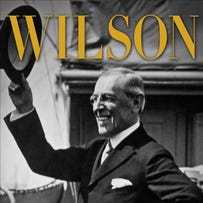The Overlap of Cultures
 The play Onassis by Martin Sherman, running at London’s Novello Theatre, reminds us of the world the famous magnate came out of, the world destroyed when in 1922 the Fourth Turkish Cavalry rode into the city of Smyrna and wiped out its polyglot culture.
The play Onassis by Martin Sherman, running at London’s Novello Theatre, reminds us of the world the famous magnate came out of, the world destroyed when in 1922 the Fourth Turkish Cavalry rode into the city of Smyrna and wiped out its polyglot culture.
Onassis remembered the lost culture all his life as an idyll, a city where Armenians, Levantines, Jews, Muslims and Europeans lived with a Greek population twice that of Athens. It was the most tolerant and ethnically cosmopolitan city in the world, where most families spoke two languages and at waterfront bars or shaded cafe gardens read their choice of 11 Greeks, seven Turkish, five Armenian, four French and five Hebrew newspapers.
Onassis would be able to recall all his days the smells of Turkish hookahs, the roasted cinnamon in Armenian patisseries, the roasting Caucasian sweetmeats.
This multicultural paradise ended brutally when the Turks inflicted the massacre that wiped out the Armenians and created a Greek diaspora.
So ended one of the world’s great models of an untidy, contradictory and therefore wonderful pluralistic community. I would nominate the Islamic medieval culture of Southern Spain, Andulusia, and that of Tang Dynasty China 600 to 900 AD as other exemplars. The historic tendency is to over-ride such experiments with the force of unifying, nationalistic conformity – with monocultures, as happened when the Christian monarchs conquered southern Spain. Or Ataturk’s armies torched Smyrna.
In today’s Financial Times (Saturday, January 8 ) Sydney’s John Azarias writes a defense of the Greek-Alexandrian poet Cavafy. It is an extraordinarily eloquent and humanistic observation.
He says Cavafy’s “constant companions of the mind” were the multi-ethnic worlds of the Seleucids, of the Ptolemies, of Byzantium and of the Ottomans. Says Azarias : ” The cultural and other encounters that are described in his poems make no distinction between Greek, Egyptain, Syrian or any other ethnic group.”
He says Cavafy’s lineage is Homer, a Greek who could write about Trojans with compassion, and Herodotus who had been condemned by Plutarch as a lover of barbarians (“philobarbaros “).
Concludes Azarias, this quintessentially Alexandrian spirit – he might have written Symrnan spirit – is what the world needs more of today.
As the King of Jordan said, we need an overlap of cultures rather than a clash of cultures. The breeding ground and the apotheosis of extremism and crusades and intolerance and bombing of mosques and churches is fanatical, monocultural obsessiveness, this hatred of the happy contradictions of pluralism.
Comments are closed.


Ah Cafavy!
Cafavy and Neruda are my two favourite poets although I will have to say that Cafavy eclipses Neruda (just by a notch). Reading Cafavy’s Ithaka during the dark times in my life has always uplifted me and reminded me that life is a journey, full of experiences, some good and some bad, but always an experience. Ithaka is always on my mind.
Cafavy’s birthplace, that beautiful city of Alexandria, is sadly no longer. It exists only in memory and prose. The bricks and mortar still stand however there are no Greeks and no Jews (both communities predated Arabs and Islam in Egypt) and probably soon no Copts. How very sad!